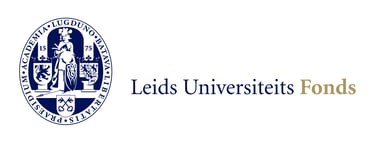Global Warming in Southern Madagascar: a silent crisis
In the far south of Madagascar, on the outskirts of a remote and fragmented region, global warming is becoming increasingly present in the daily lives of an exhausted and impoverished population. A forgotten or misunderstood crisis, it is a clear and powerful symbol of Western imperialism: the exploitation of land and people, as well as obsession with capital and wealth, implies multiple outcomes. This phenomenon is not unique: the peoples of the South often reap the fruits of Western exploitation - and in recent years, the climatic consequences have unjustly multiplied.
Maël Faber
11/21/2024
In the far south of Madagascar, on the outskirts of a remote and fragmented region, global warming is becoming increasingly present in the daily lives of an exhausted and impoverished population. A forgotten or misunderstood crisis, it is a clear and powerful symbol of Western imperialism: the exploitation of land and people, as well as obsession with capital and wealth, implies multiple outcomes. This phenomenon is not unique: the peoples of the South often reap the fruits of Western exploitation - and in recent years, the climatic consequences have unjustly multiplied.
Rain is scarce, water is nowhere to be found. Farmers - forced to leave their primitive installations and their families to harvest food - are at the end of their tether. Men, women, children, and infants are emaciated and thirsty: any water they find, although unhealthy and undrinkable, signifies hope. The hope of survival amongst the people remains despite challenges. For three years, their cries of desperation have fallen on deaf ears.
In light of this, they had to find something to survive on: shoes, soil, and other edible objects became the lunch of young children. The COVID crisis also didn't help matters, nor did the prevalent elitism or staunch hierarchy in Madagascar society. And yet, the smile remains an undeniable characteristic of the Malagasy people. While they are living a waking nightmare, while their bones are coming out of their bodies, their continued positivity and optimism give a glimpse of hope for a better future.
For one of the first times since the beginning of humanity, Madagascar is facing the first direct crisis linked to the consequences of global warming - and yet the island is far from being the main contributor to environmental upheaval. Despite the alarming situation, this crisis is not publicized in the media. Reports from the United Nations have remained minimal, the NGOs have been powerless, and the government has merely embellished its image.
Yes, a few wells have been built. No, a clear and concrete solution has not been found. The World Food Programme, CARE... Many institutions and NGOs have looked into the matter, but their mobilization has not been enough to break the silence of the international community, dominated by Western hegemony, which is once again fragmenting rather than uniting.
Since 2019, this crisis has continued to worsen: the endemic nature of poverty in Madagascar reinforces societal impacts, inequalities accumulate, and communities - illiterate and devoid of any decision-making capacity - suffer even more. They are forced to migrate, not for a better life, as they find themselves in other shanty towns, once again drowned in their silence.
Maël Faber


